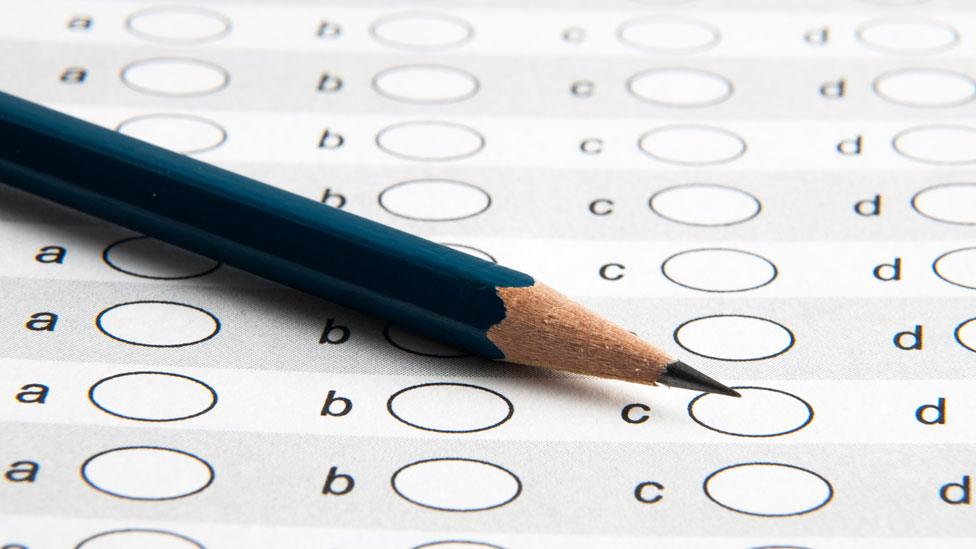Pupils' digital skills not keeping pace, Estyn reports
- Published
- comments
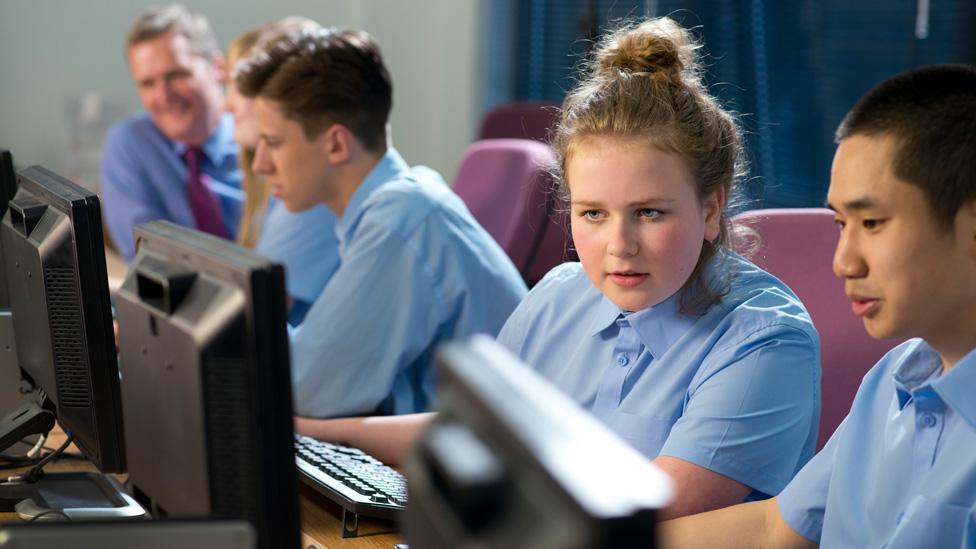
Raising standards in maths and language skills is still a priority for schools despite improvements in recent years, an education watchdog has said.
Also pupils' progress in digital skills has not kept pace with technology, said Estyn in its annual report.
The chief inspector welcomed a shift towards a "culture of self-improvement" and more joint working between schools.
Half of secondary and 70% of primary schools inspected were judged good or excellent in 2016-17.
This is broadly in line with overall results since 2010 with the rest judged adequate or unsatisfactory.
Looking after pupils' wellbeing is one of the strongest features of the education system, while standards and teaching are relatively weaker, according to Estyn.
Chief inspector Meilyr Rowlands said "there is much to be proud of in the Welsh education system" and there are "many strengths" in nurseries, maintained special schools and in further education colleges.
"Variability, however, remains a challenge in most other sectors," he said.
The education secretary welcomed the report as showing sustained momentum in the education system.
Estyn's 2016-17 annual report looks at key policy areas over the past seven years, back to 2010 when the current inspection cycle began.

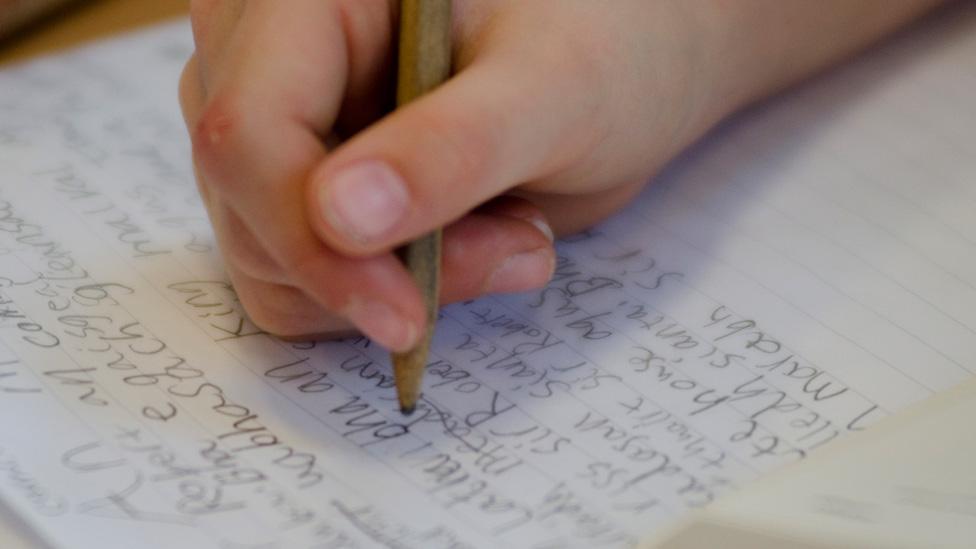
Literacy and numeracy
Poor results in Pisa international tests were a key reason for introducing a new emphasis on literacy and numeracy in 2013 as well as a national reading and numeracy test for seven to 14-year-olds.
The report says that since then there have been improvements in how schools promote literacy but the standard of pupils' writing is weaker than other aspects.
In many primary schools "pupils struggle to write creatively and do not write at length frequently enough" and "too many pupils continue to make basic errors in spelling and punctuation".
Over the seven-year inspection cycle the inspectorate found that in primary schools "enthusiasm for literature, their knowledge of different authors and stories, and their ability to express preferences about specific books, authors or genres have declined".
Overall the report found that the teaching of numeracy has improved.
But the report says: "In about a third of primary schools and three-fifths of secondary schools, there are shortcomings in the way that schools plan for and ensure that pupils use and develop their numeracy skills across the curriculum."

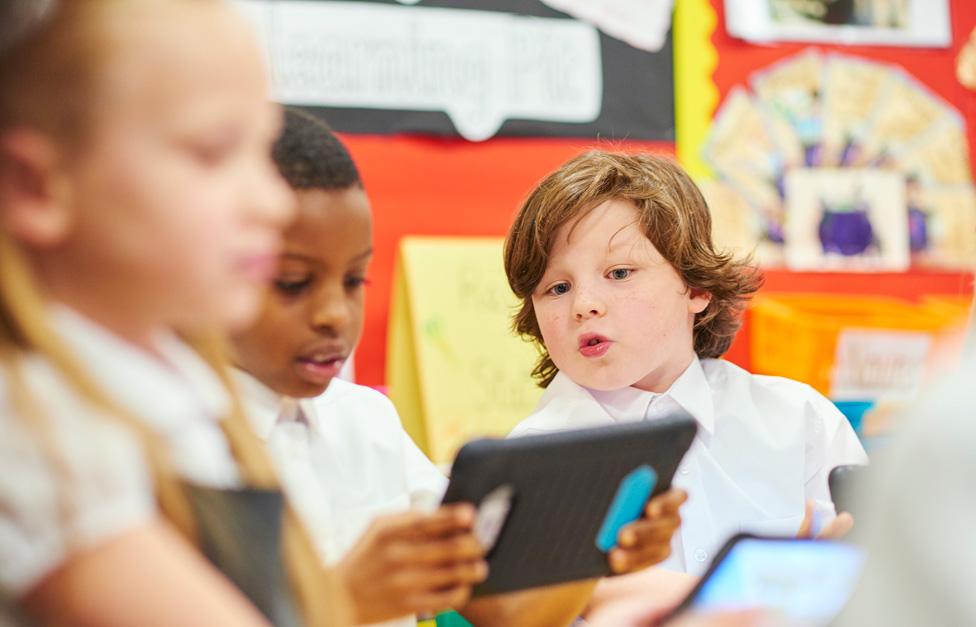
Developing digital skills
There has been an emphasis on boosting digital and information technology skills in recent years and, along with literacy and numeracy, schools will be expected to emphasise it in all elements of the new curriculum which will be rolled out from 2022.
But the report says that opportunities to develop information communication technology (ICT) skills across subjects are "limited in many secondary schools and a third of primary schools".
In just under two-thirds of primary schools, there are "important shortcomings in standards of ICT".
Though most pupils are confident using programmes such as word processing and creating presentations, their skills are often limited to "a narrow range of applications".

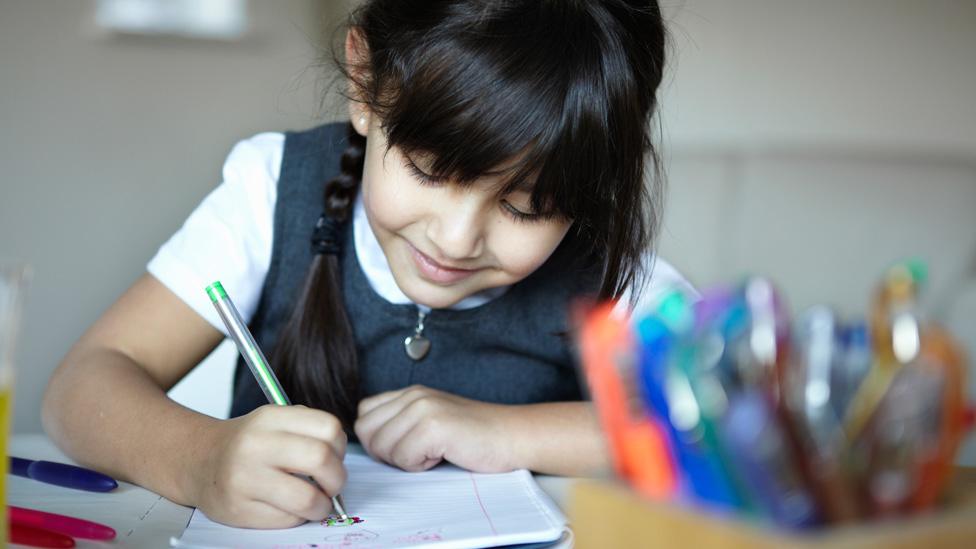
The Foundation Phase
Since 2011, three to seven-year-olds have been taught through the Foundation Phase, which is meant to be a less formal way of learning through activities.
But the report says that overall its application has been "inconsistent" and though there is generally a strong commitment to the principles "more recently there has been increasing formality".
It says only about a quarter of schools deliver the Foundation Phase well and about three-quarters of head teachers do not fully understand the principles behind it.

Tackling the effects of disadvantage
Another major priority in education policy over the past seven years has been tackling the impact of poverty on pupils' performance at school and, though the chief inspector has found that there is now a stronger focus in schools on this aim, the gap has not narrowed at GCSE.
The report also notes "despite some improvements, the attendance of pupils that are eligible for free school meals continues to be a concern at all phases".
Over the last three years, about 40% of 14 to 16-year-olds eligible for free school meals have less than 90% attendance compared to 16% of other pupils.


Primary schools
Between 2010 and 2017 there were improvements in the performance of boys and pupils eligible for free school meals.
But in a third of schools more able pupils "do not achieve what they are capable of".
Standards of wellbeing have been good or better in seven in 10 schools and attendance has improved in most schools.
But the quality of teaching has varied over the past seven years.
In 2016-17, 20% of the primary schools inspected were judged as excellent, and six schools (3%) were put in special measures due to failings.

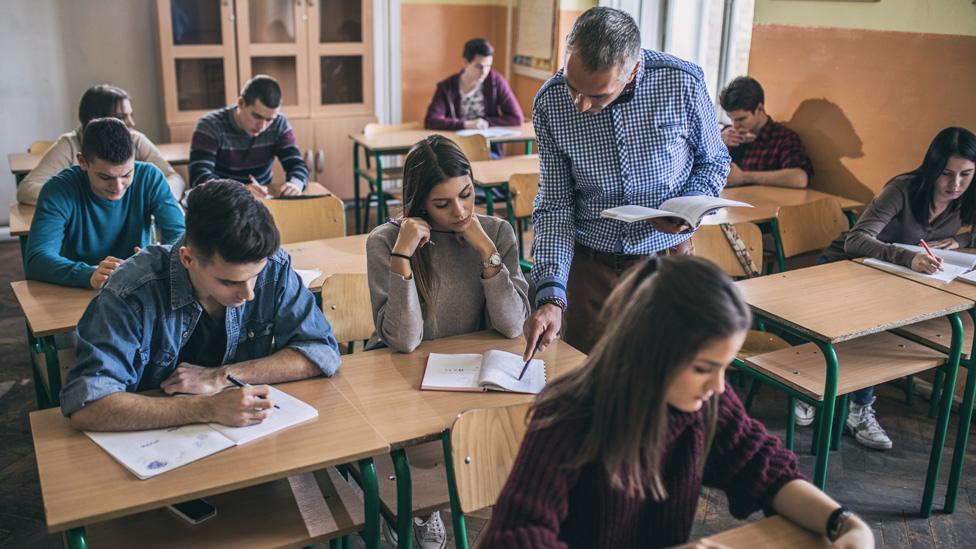
Secondary schools
Half of secondary schools inspected in 2016-17 were good or excellent, a significantly lower proportion than primary schools.
The report says that one possible reason why primary school inspection outcomes are better on average than those for secondary schools is the effect that external examinations can have.
The proportion of schools with unsatisfactory standards generally increased between 2010 and 2017.
Schools have performed well in terms of pupils' wellbeing and one of the greatest improvements has been in attendance, up from 91.4% in 2011 to 94.1% in 2017.
Improved teaching is needed in a majority of schools inspected this year and over the past seven years, the report says.

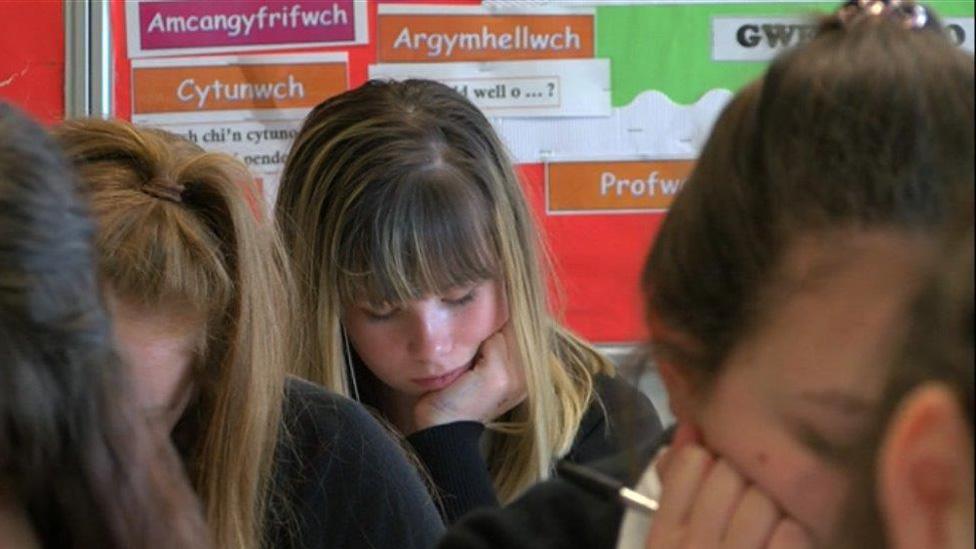
Welsh language development
When it comes to the Welsh language, in the early school years nearly all Welsh-medium schools and most English-medium schools pupils "make a good start" when learning to speak and listen in Welsh.
But there are weaknesses in the way many local authorities plan for Welsh language provision and recruiting Welsh medium staff is "a challenge across many areas of Wales", says the report.

Oldcastle Primary in Bridgend already collaborates with other schools on numeracy
School-to school collaboration
More cooperation between schools is seen as one of the biggest shifts in education over the past seven years and Estyn believes there is enough excellence across Welsh education to support improvement and help reduce variability.
The "spirit of cooperation" was most obvious in the way that the new curriculum is being developed.

Political and professional reaction
David Evans, Wales secretary of the teaching union, National Education Union Cymru (NEU), said: "This report shows that despite increasingly difficult funding settlements and the ongoing concerns of workload, schools and teachers in Wales are continuing to provide an education service we can be proud of. "
He said it was "especially good news" to see Estyn praising schools for working constructively together.
Plaid Cymru education spokesman Llyr Gruffydd said the move towards a culture of self-improvement within Welsh education was not enough to raise standards.
He said: "Everyone knows that unless the government urgently address the underlying issues of diminishing education budgets and failures on recruiting and retaining teachers, this new culture is merely a case of building a house on sand."
Welsh Conservatives education spokesman Darren Millar said the report highlighted many of the same concerns from previous annual reports.
"It's clear that we need to make much more rapid progress to ensure that our children get the high quality education they deserve," he said.
Education Secretary Kirsty Williams said: "Our national mission for education seeks to raise standards, reduce the attainment gap and deliver an education system that is a source of national pride and enjoys public confidence.
"The report notes our efforts to reduce the attainment gap, but we know there is no room for complacency.
"That's why we're doubling the Pupil Development Grant, external for our youngest learners, so that every child has the opportunity to reach their potential."
- Published5 April 2017
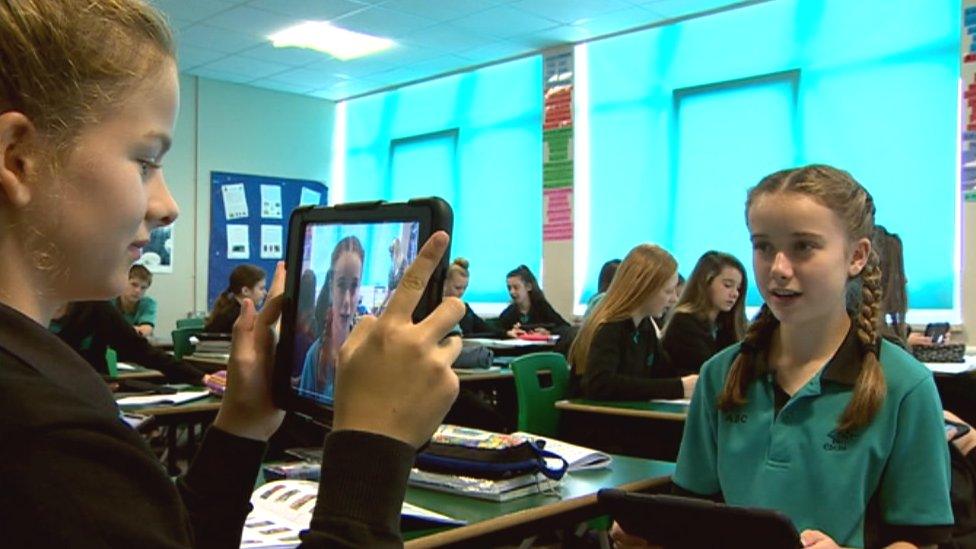
- Published24 January 2017
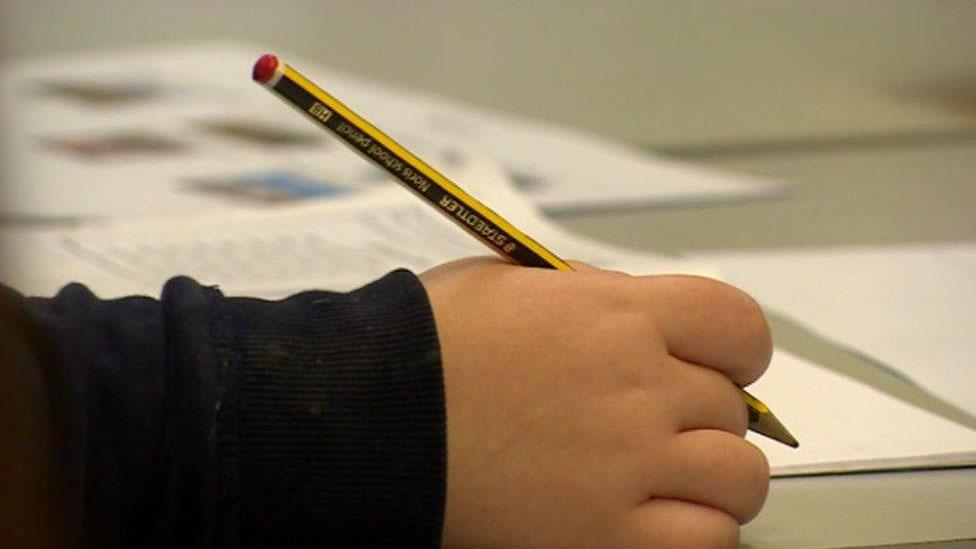
- Published24 January 2017
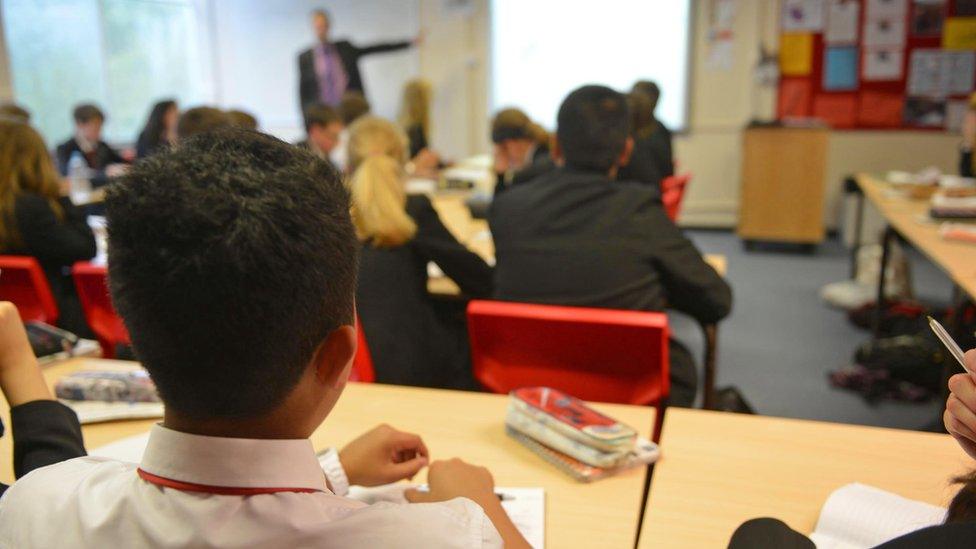
- Published8 December 2017
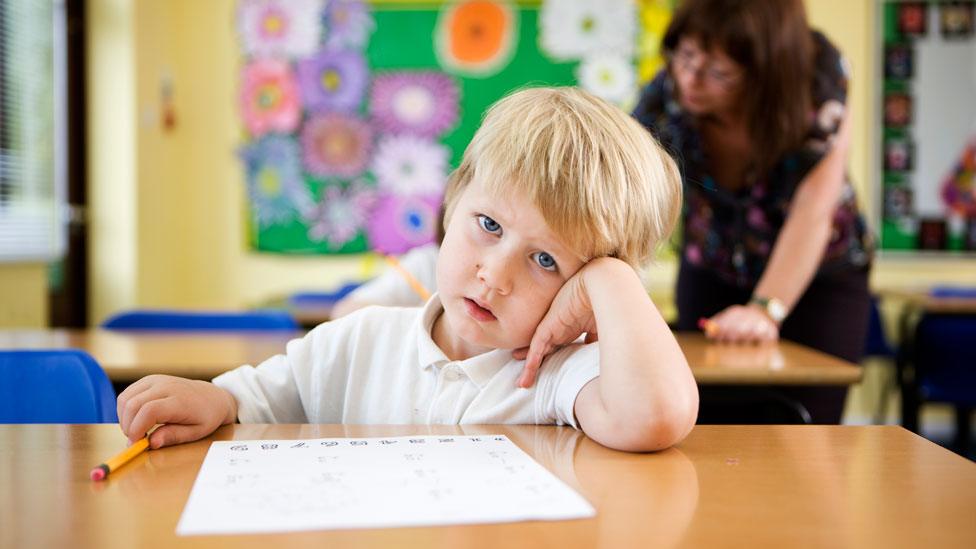
- Published5 October 2017
